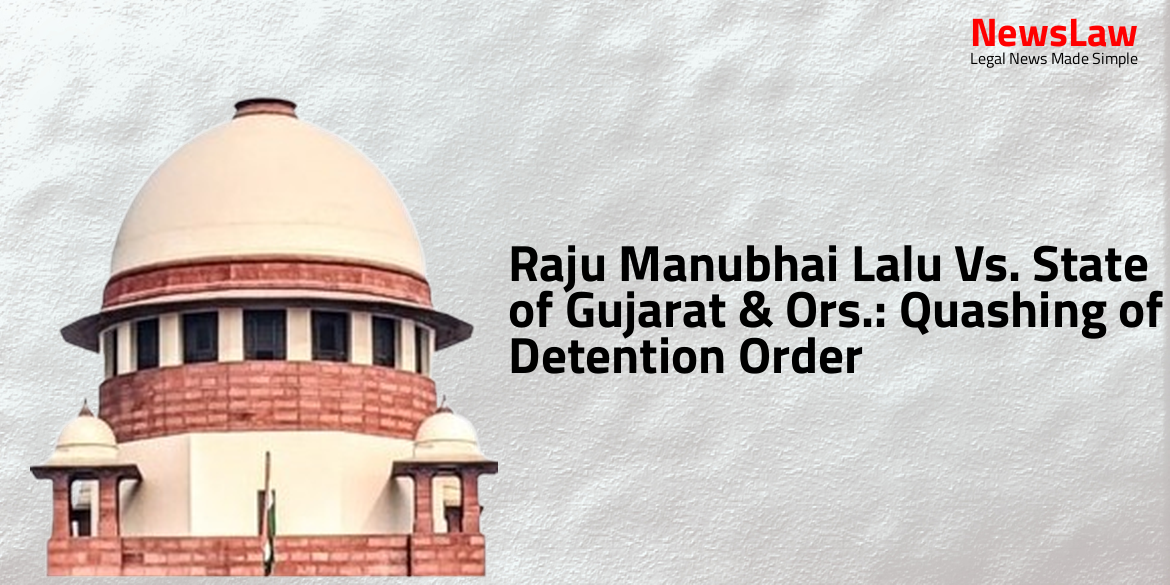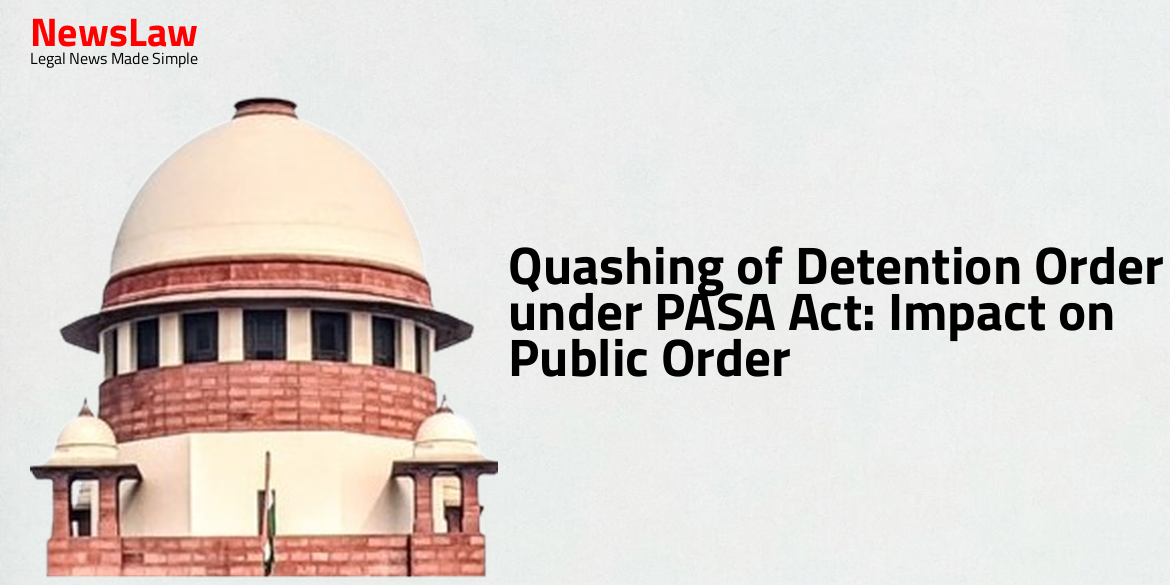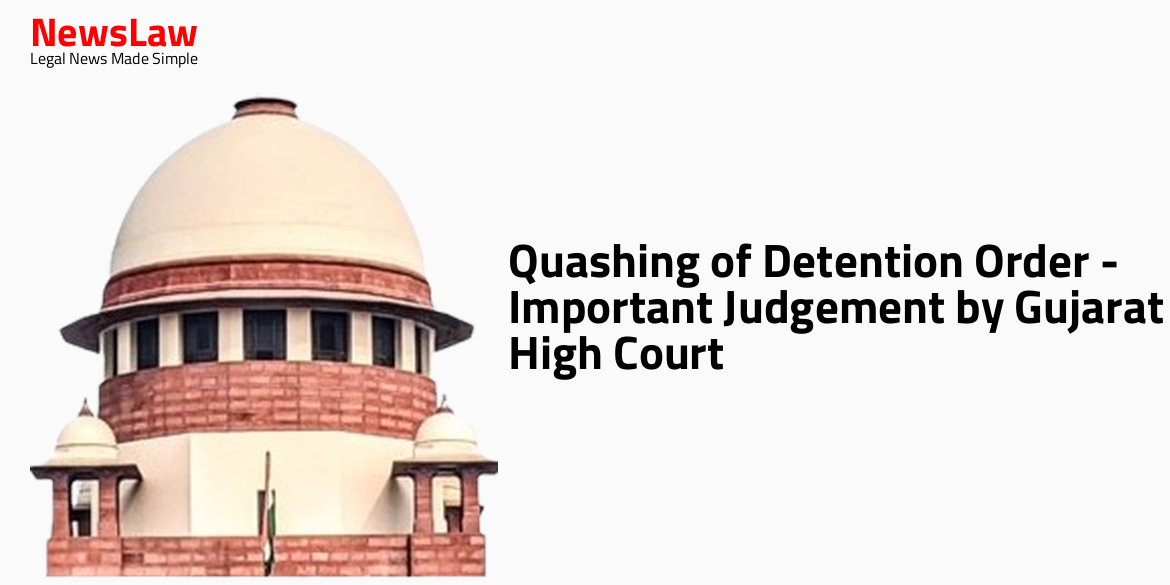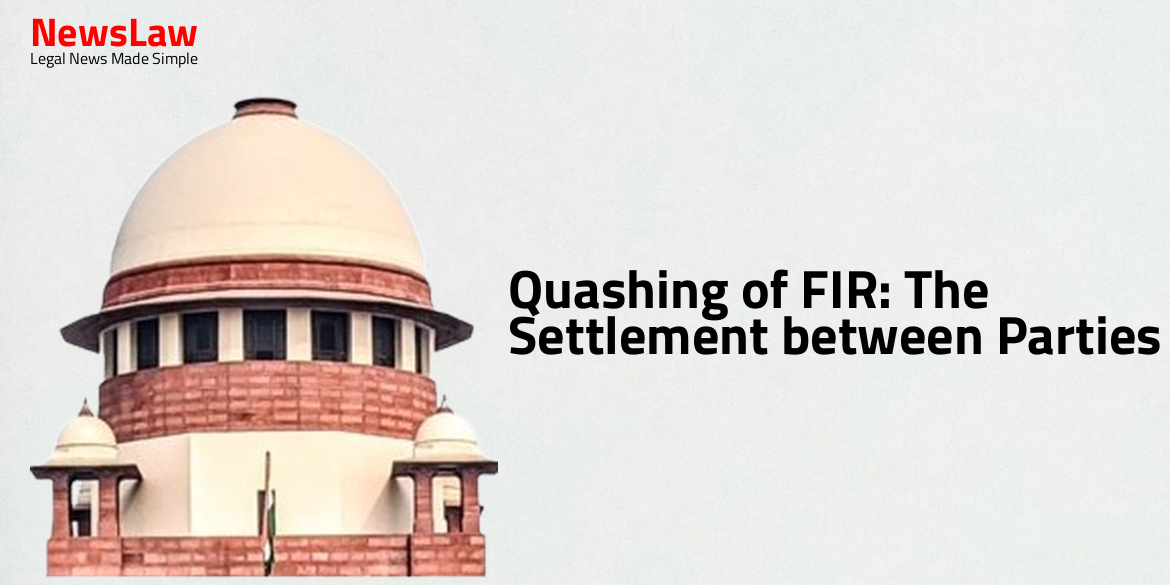In a significant ruling by the Gujarat High Court, the detention order in the case of Raju Manubhai Lalu Vs. State of Gujarat & Ors. has been quashed. The judgment underscores the importance of fulfilling legal criteria for preventive detention, particularly in cases related to public order. Let’s delve into the details of this case and the implications of the court’s decision.
Facts
- Petition filed under Article 226 of the Constitution of India seeking relief to quash the detention order dated 26/10/2023.
- The challenge is primarily against the detention order passed by the Police Commissioner, Vadodara, on the grounds of being illegal and null and void.
- The petitioner has been detained as a ‘bootlegger’ based on a solitary offense registered against him.
Arguments
- Illegal activity alleged does not have any nexus with public order.
- Order of detention should be quashed as the solitary offence under the Prohibition Act is not enough to bring the case under the Act’s definition.
- Learned AGP supported the detention order passed by the authority.
- Sufficient material and evidence found during investigation were supplied to the detenue.
- Detenue was found to be in the habit of indulging in activities defined under section 2(b) of the Act.
- The detaining authority rightly passed the detention order considering the facts of the case.
- Grounds of detention indicated registration of a solitary FIR.
- State could have filed a cancellation of bail application instead of resorting to detention.
- No relevant material connecting detenue’s alleged activity with breach of public order apart from statements of witnesses, registration of FIRs, and Panchnama.
- Detenue granted bail for the offense cited by the detaining authority.
- Detention order passed on 26.10.2023.
Analysis
- The court found that the detaining authority did not provide sufficient evidence to justify that the petitioner’s activities as a bootlegger adversely affect public order.
- There was no contemporary material or record to support the claim that the sale of liquor by the petitioner had resulted in disturbances in society or damage to public health.
- The court emphasized that detention under PASA Act should be based on ‘public order’ and not ‘law and order’.
- It was noted that the detaining authority can order detention based on a solitary incident only if there is justifiable subjective satisfaction that it could disturb public order and needs preventive action.
- The argument that preventive detention cannot be ordered based on a single incident was not accepted outright, but it was emphasized that there must be convincing reasons to show adverse impact on public order.
- The fact that the petitioner was released on regular bail by the competent court was not considered by the detaining authority when issuing the detention order.
- The detention order did not reflect a consideration of other measures such as cancellation of bail to prevent the petitioner’s activities.
- In a previous case of Raju Manubhai Lalu Vs. State of Gujarat & Ors., the court observed that mere selling or possession of any Indian made foreign liquor does not cause harm, danger, alarm, or insecurity among the public.
- The coordinate Bench of the Court, in the case of Vasava Umeshbhai Laxmanbhai Vs. State of Gujarat & Ors., noted that the Detaining Authority did not consider the option of canceling bail, which could vitiate the subjective satisfaction required for detention.
- Referring to the recent decision in Shaik Nazeen v/s. State of Telangana and Ors., the Court highlighted that preventive detention may not be the appropriate remedy if other penal laws can address the situation adequately.
- The Court emphasized that the detaining authority’s subjective satisfaction must be legally valid and in line with the law, with the alleged offenses being necessary for disturbing public order as per the Act.
- The judgment in Sohanlal Surjaram Visnoi case was cited to support the requirement for the person to pose a real threat to society and public order before invoking detention laws.
- Absence of material on record invalidates the subjective satisfaction of the detaining authority.
- Simplicitor registration of FIRs does not establish a nexus with the breach of public order.
- No relevant and cogent material existed for invoking power under section 3(2) of the Act.
- Petition likely to be allowed due to lack of valid grounds for detention.
Decision
- Direct service permitted in this case.
- The petition is allowed and the order of detention is quashed and set aside.
- Detenue to be set at liberty forthwith if not required in any other case.
- Rule is made absolute accordingly.
Case Title: MAHENDRASINH MANGALSINH RAVAT Vs. STATE OF GUJARAT
Case Number: R/SCA/19768/2023



